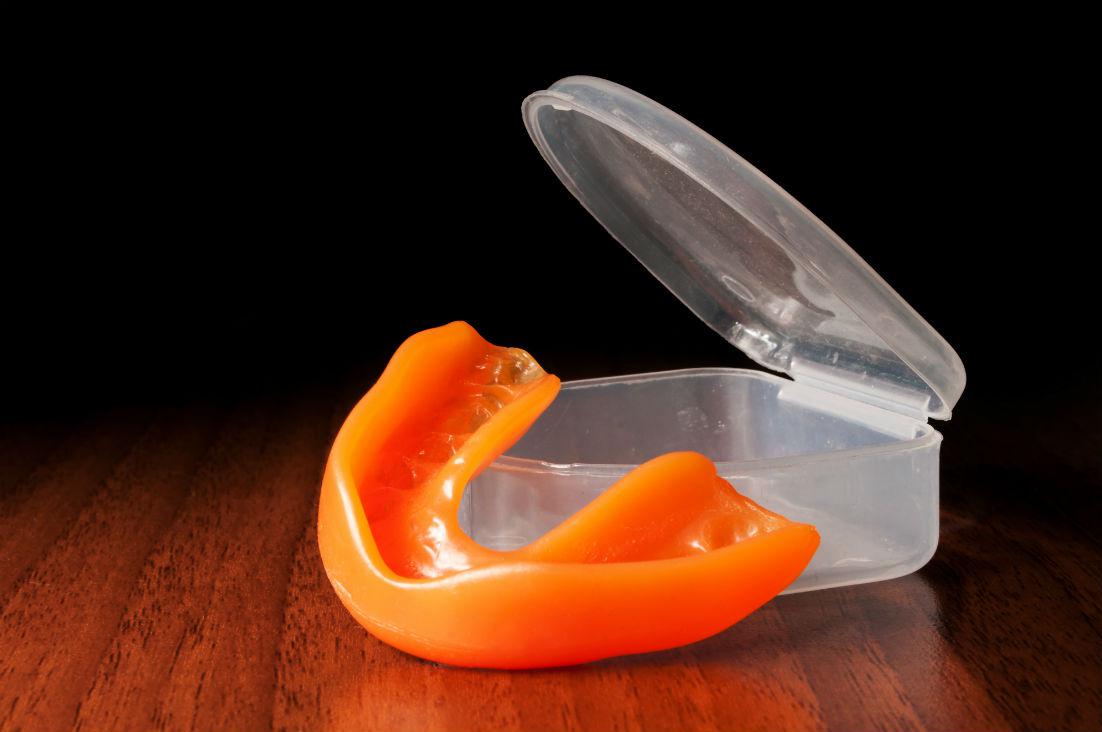Mouthguards

Playing sports and getting exercise is a key component of a healthy lifestyle, but it is not without risk. Your dentist can help you to protect your smile by fitting you with a custom mouthguard. Sports such as football, gymnastics, basketball and rugby all have the potential for injury. The American Dental Association recommends that you wear a mouthguard to protect your teeth and gums if you decide to participate in any high impact activities that could impact the wellbeing of your teeth or jaw.
Choosing The Right Mouthguard
Some people choose to wear a pre-made mouthguard or a “boil and bite” mouthguard, but a custom mouthguard will give you the best fit and most protection. Above all else, it is important to have a tear-resistant mouth guard so it can keep your teeth firmly in place. If you experience any trouble breathing while wearing your mouthguard or find it difficult to clean after use, you should consider another option. For people who wear braces, a mouthguard is absolutely necessary to avoid oral scrapes and the potential displacement of the teeth. Even if you decide not to get a custom mouthguard made by your dentist, they can give you advice on how to use your current mouthguard and whether it is a good fit for you.
Mouthguard Aftercare
As mouth-guards are in contact with your mouth regularly they must be cleaned and stored in a way the limits your risk for infection. Like a toothbrush, you will inevitably need to replace your mouthguard when it becomes worn out from use. Here are a few tips from our dentist on how to take good care of your mouth guard:
- Keep your mouthguard in a protective case and store it in a cool dry place.
- After use, make sure to brush your mouthguard with toothpaste to eliminate bacteria.
- Temporary mouth gear, such as a retainer, should not be worn with a mouthguard.
- Avoid chewing on the mouthguard to preserve its durability and effectiveness
- Purchase a new mouthguard for every sports season.
- If your mouthguard feels worn, replace it immediately to ensure your safety.
- If you are unsure about the state of your mouthguard, feel free to bring it to the office and show it to your dentist for feedback.
A healthy exercise routine shouldn’t put you at risk for oral injuries. If you play sports, or would like to start, remember to ask your dentist about mouth-guards during your next visit.

